Photo






Every Arya & Lyanna parallel:
→ beauty
LYANNA
— “Lyanna might have carried a sword, if my lord father had allowed it. You remind me of her sometimes. You even look like her.”
“Lyanna was beautiful,” Arya said, startled. Everybody said so. It was not a thing that was ever said of Arya.
— The northern girl had a wild beauty, as he recalled
ARYA
— Best you have a new face as well. A pretty one this time, I think. As pretty as your own. Who are you, child?“
— Or would you sooner be a courtesan, and have songs sung of your beauty?
— "I’m sorry I tore the acorn dress too. It was pretty.”
“Yes, child. And so are you. Be brave.”
419 notes
·
View notes
Photo
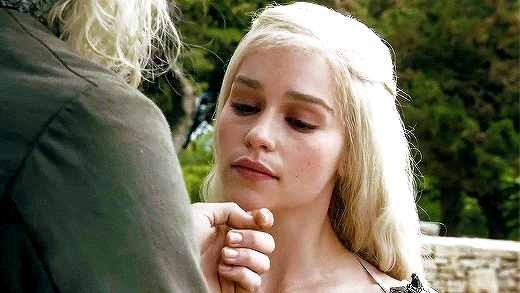
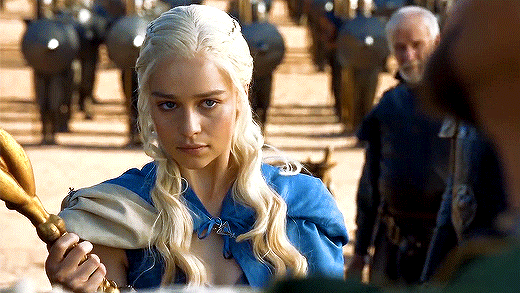



Daenerys Targaryen + the “being done with men” stare
2K notes
·
View notes
Text
in search of homes: jon and arya
Granny
Are you trying to say something to the reader by drilling into us how much Arya and Jon love each other?
George_RR_Martin
“Say something to the reader?” No, I’m just reporting how the characters feel. <g> Of course, everything in the book says something to the reader.
x
According to GRRM, everything in the books says something to the reader. Yet, the content of novels are ultimately a series of choices by the authors. By reporting what characters feel, readers are given a better understanding of characters. This information gives the readers the knowledge of what characters desire, fear, love, and hate. In essence, these feelings make a character. What influences their decisions? What do their thoughts and decisions say about them as individuals and how they develop? Those are based on the feelings shown in text. And since character feelings are produced by having them react to setting, conflict, and other characters, one can argue that character relationships developed within the text are vital to understanding the nature and growth of characters.
So, what does that mean for a relationship Jon Snow and Arya? Well, a great deal. The heavy ‘reporting’ of their feelings, or their love, tells the readers much about not only their relationship, but about who they are as characters.
From the start of A Game of Thrones, the relationship between Jon and Arya stands apart from the rest of Stark familial relationships. On a purely physical level, readers are told that they are the only children who have inherited their father’s looks. Right there, GRRM clearly and actively singles them out as the different children, the ones who not only have a striking resemblance. This notion is only enforced by the fact they are indeed outsiders within the Stark family. As a bastard, Jon must constantly live in the shadow of his brother, Robb, and feel like an interloper in his own home. For Jon, life as a bastard in Winterfell is a life colored by his social stigma. On the other hand, Arya is not a bastard. Yet, she must contend with the disapproval of her mother, sister, and septa on a regular basis because Arya defies their ideal conventions for a proper lady. That disapproval, along with teasing by Sansa and Jeyne, is what makes Arya feel like an outsider within parts of her own family. However, these outcast experiences are also what bond Jon and Arya to each other in ways that they are not bonded to their other siblings. Based on their shared experiences, Jon and Arya connect on an emotional level that is deeper and closer than the other Stark children relationships.
Of course, that bond does not mean Jon and Arya don’t love their siblings. For the most part, Jon and Arya get along with their other siblings, but there is conflict. For example, Jon and Robb were incredibly close, but that relationship is conflicted by their natural rivalry. Though Jon loves his brother dearly, the pain of their underlying conflict is always an issue for Jon from A Game of Thrones to A Dance with Dragons. Similarly, Arya’s feelings for Sansa are complex and conflicted by the rivalry in their own relationship. In contrast, Jon and Arya are not forced into competition with each other in way, and thus their relationship provides a refuge of unconditional love and the understanding that comes along with shared experience. Their relationship helps build and change their characters as the series go on. From the onset, their relationship tells us that Jon and Arya are two often lonely and misunderstood children eager to find a space where they fit in. They want unreserved affection and acceptance for who they are as individuals. These desires are abundantly clear from their first PoV chapters alone. In Jon I and Arya I, both children are brought to tears by the criticisms of their elders. In both chapters, the children also run away from difficult situations after being singled out by elders. Their search for a refuge ultimately brings them together in Arya I for their first scene together. In fact, that scene is what colors their relationship from the start. Jon is unhappy with the exclusion and scorn he feels as bastard whereas Arya is upset that she is scorned for being true to herself. Yet, even though the two bond over the unfairness of their respective situations, Jon still feels the need to warn Arya of her duties and send her in the right direction. In that sense, Jon, though barely a teenager, takes on a heavier role than just brother for Arya. When it comes to Arya, Jon is almost fatherly in that he feels a heavy responsibility for welfare and actively attempts to guide her in the right direction. Though Jon may have acted that way with his other younger siblings, it is not shown in the text. So, we can only reliably know that Jon takes on the role of guardian with Arya, his “little sister.” This role as guardian is furthered by the fact that Jon has Needle made for Arya before his departure to the Wall. If Jon cannot be there to protect her, then he makes sure he can give her arms before he goes. Later on, Ned will take over the responsibility of having Arya properly trained in sword fighting/water dancing. In that way, Jon’s act of giving Arya the sword can be viewed an act of paternal duty since their own father felt it necessary to have Arya trained in combat.
But what does this early relationship mean for the two characters as they change drastically throughout the series?
The search for a refuge in a world without safety is key to understanding the importance of Jon and Arya’s relationship. Calling back to their beginnings in A Game of Thrones, one can see that the bond between Jon and Arya acts a refuge for them. Once they are forced apart in that book, both children lose that particular safety net. As the novel progresses in conflict, the two find themselves in increasingly dangerous situations. Any hopes for a Starks victory tends to falter once Ned’s head is lopped off. Eventually, the Stark family at large end up entangled in a war against the Lannisters in the south. At the Wall, Jon is confronted by the ominous approach of the Others and White Walkers. Yet, Jon decides to stay with his brothers at the Wall in order to defend the realm after an attempt to escape and join Robb’s army. This particular choice is an important turning point in Jon’s development. When confronted between the choice between love and duty, Jon chooses duty over Robb. As for Arya, her life is drastically turned by Ned’s execution. However, there is a lingering hope that she will return to the Winterfell, and even the Wall.
In A Clash of Kings, Jon and Arya find themselves in unknown, dangerous territories when Arya travels through the war-torn Riverlands and Jon journeys beyond the Wall.
Jon
He remembered suddenly how he used to muss Arya’s hair. His little stick of a sister. He wondered how she was faring. It made him a little sad to think that he might never muss her hair again.
Arya
She yearned to see her mother again, and Robb and Bran and Rickon … but it was Jon Snow she thought of most. She wished somehow they could come to the Wall before Winterfell, so Jon might muss up her hair and call her “little sister.” She’d tell him, “I missed you,” and he’d say it too at the very same moment, the way they always used to say things together. She would have liked that. She would have liked that better than anything.
In the midst of all the uncertainty and danger in their situations, they both end up thinking of each other. For Arya, her thoughts of Jon are her wish to feel a close connection again. Arya’s longing for a pack is essential to her character, but here she focuses on Jon, the sibling so close to her that they even finish each other’s sentences. On Jon’s part, he wonders about Arya’s welfare, but he also feels sad at the prospect of never mussing her hair, or never seeing her again. In these situations, Arya and Jon once again on another search for a refuge as they did at the start of A Game of Thrones. Still, this is only one example of the almost excessive amount of times the pair think of each other throughout the series.
Arya’s journey to Winterfell, under the protection of being with Night’s Watch recruits, is a clear link to Jon. At one point, she even considers the possibility of convincing Yoren to arrive at the Wall before Winterfell in order to see Jon first. As much as shed would like to go home, she wishes to see Jon first because he is so dear to her. In that sense, Jon is a refuge for Arya. This concept of Jon as a means of shelter and acceptance becomes explicit said in Arya’s arc when she thinks that Jon would love her when no one else would. Despite the terror, emotional and physical, of her journey throughout the hellish Riverlands, Arya knows she will find acceptance with Jon Snow because she feels like his affection for her would never waver unlike her other family members. In a world of uncertainty, Arya is assured that Jon is will assign some order and love in her life. For those reasons, her search for Jon, her refuge, resumes in an active form post-TRW once she asks the captain of the Titan’s Daughter if the ship can take her to the Wall. When all is lost, Arya seeks passage to the Wall and searches for Jon because he is shelter in her mind. However, even after Arya has taken up with the Faceless Men in Braavos after failing in her efforts to get the Titan’s Daughter to make a stop near the Wall, she is still connected to Jon in her story. Indeed, her rescue of Sam, execution of Dareon for deserting the Night’s Watch, her questions about Dareon’s voyage to the Night’s Watch (Note that Arya asks these questions, not Cat), and the information she has collected about Jon’s Hardhome refugees are points in which their storylines intersect within Arya’s arc. In spite of the fact that these two siblings are on two different continents, their stories come closer together in material means rather than be further separated. Though she believes herself to be alone in the world, Arya’s connection to Jon is even stronger than it was in the pre-A Feast for Crows novels.
Similarly, Jon’s connection to Arya becomes more pronounced in the series after A Storm of Swords. Like Arya, Jon abandons any thoughts of returning to his old life in Winterfell once he’s named Lord Commander. Yet, his A Dance with Dragons focuses heavily on the conflict that arises from that decision among others. Specifically, the marriage between Ramsay Bolton and Arya causes Jon significant turmoil since he continues to stew over the marriage throughout the book. His concern even leads Jon to make a deal with Melisandre and Mance Raydar, two people he would not willingly become entangled with until he had Arya’s welfare to consider. From that point, Jon’s arc begins to take a significant turn as far as love and duty are concerned. While Jon was able to keep his vows rather than go to war for Robb or remain with Ygritte after falling in love with her, Jon goes against his duty as Lord Commander by partaking in the politics of the realm based on no other information but his heart. In total opposition to the advice given to him by Maester Aemon and Jeor Mormont, Jon chooses love and his emotional feelings. This change of heart then goes on to affect his decisions with the Wildlings and sheltering Alys Karstark from her scheming relatives. On his own accord, Jon even helps bring about the marriage between Alys and Sigorn, the magnar of Thenn, thus making a Free Folk-Northern alliance instead of marrying her to one of Stannis’ bannermen. One can certainly see this act as another political decision being informed by love. Unlike other Night’s Watch commanders and Westerosi in general, Jon understood the humanity of the wildlings, and he learned to respect their cultures during his time with the free folk and Ygritte. Also, Alys’ arrival to the Wall as the second Arya proxy in Jon’s A Dance with Dragons arc secured her some shelter and sympathy from Jon. These decisions, among others concerning the Wildlings, are ultimately what bring Jon to his end destination in the novel. After discussing the threatening letter he received from Ramsay with Tormund Giantsbane, Jon makes a decision that finally gives a clear and bold alternative answer to the ‘love versus duty’ question that plagues his overall series narrative. In the end, Jon chooses Arya over the will of the Night’s Watch. To understand his final choice after a book of internal struggle, one has to examine the relationship he was with Arya. This decision is a reversal against the decision he made in A Game of Thrones. Jon chose his new brothers over Robb in the first book, but he chooses Arya over his Night’s Watch men in the fifth book. Both of these siblings were incredibly close and important to Jon, so why does he break his vows for Arya and not Robb? The answer to that comes in his relationship to those siblings. Because of the sibling bond and paternal feelings Jon feels for Arya, he breaks his vows for her. Jon’s choice is natural since it is an extension of the relationship the readers were exposed to in A Game of Thrones. When it comes to Arya, Jon isn’t Lord Commander Snow who makes the cold, hard decisions for the greater good. By choosing to fight Ramsay, Jon doesn’t do what is best for the Wall and his brothers, he does what is best for Arya because he has always loved her differently than his other siblings. His instincts to guard her and dote on her above all the others were illustrated in the Needle scene. Jon not only made certain to see her before he went, but he also only gave Arya a gift that would protect from her harm and approve of her unconventional interests when no one else did. Ultimately, Jon chooses the true, incredibly protective, and unconditional love he has for the little sister, the one person who he knows unconditionally loves and respects him.
Bring her home, Mance. I saved your son from Melisandre, and now I am about to save four thousand of your free folk. You owe me this one little girl.
As it’s been noted by other fans, Jon’s reference to ‘home’ in this quote does not refer to Winterfell. In Jon’s view, Arya’s home is with him, at the Wall or anywhere else. The same could be said for Arya who searches for immediately searches for Jon when she’s all alone. For these two siblings, their hearts beat as one. In their childhood connection to each other, they have built a place of refuge, a home within another person. Despite all the changes and obstacles they have overcome, Jon and Arya are still very much the lost, and often lonely, children of Winterfell in search for another kindred soul confide in. At the heart of their stories, which takes them to new cultures and lands they never imagined being a part of, is an ultimate search for their home.
523 notes
·
View notes
Photo
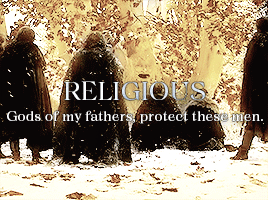


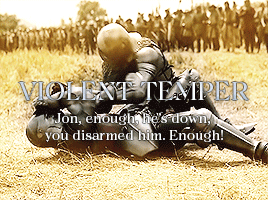


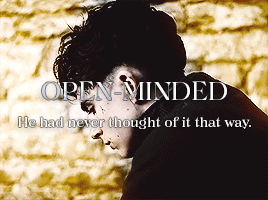


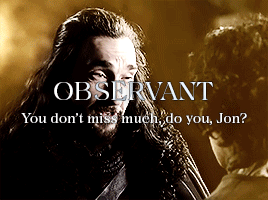
JON SNOW APPRECIATION MONTH 2022
Day 3 → Personality Traits
RELIGIOUS
May those deaths be long in coming. Jon Snow sank to one knee in the snow.Gods of my fathers, protect these men. And Arya too, my little sister, wherever she might be. I pray you, let Mance find her and bring her safe to me*. - Jon VII, A Dance with Dragons
PRAGMATIC
“You need not trust a man to use him.” Else how could I make use of all of you? “We need the Weeper, and others like him. Who knows the wild better than a wildling? Who knows our foes better than a man who has fought them?” - Jon XI, A Dance with Dragons
NATURAL LEADER
The other boys fell silent, taken aback by his sudden fury. “Listen to me,” Jon said into the quiet, and he told them how it was going to be. Pyp backed him, as he’d known he would, but when Halder spoke up, it was a pleasant surprise. Grenn was anxious at the first, but Jon knew the words to move him. One by one the rest fell in line. Jon persuaded some, cajoled some, shamed the others, made threats where threats were required. At the end they had all agreed … all but Rast. - Jon IV, A Game of Thrones
VIOLENT TEMPER
In the end Halder and Horse had to pull him away from Iron Emmett, one man on either arm. The ranger sat on the ground dazed, his shield half in splinters, the visor of his helm knocked askew, and his sword six yards away. “Jon, enough,” Halder was shouting, “he’s down, you disarmed him. Enough!” - Jon XII, A Storm of Swords
FORWARD-THINKING
Glass, Jon mused, might be of use here. Castle Black needs its own glass gardens, like the ones at Winterfell. We could grow vegetables even in the deep of winter. The best glass came from Myr, but a good clear pane was worth its weight in spice, and green and yellow glass would not work as well. What we need is gold. With enough coin, we could buy ‘prentice glassblowers and glaziers in Myr, bring them north, offer them their freedom for teaching their art to some of our recruits. That would be the way to go about it. If we had the gold. Which we do not. - Jon VII, A Dance with Dragons
BOLD
"I am no lord, sire. You came because we sent for you, I hope. Though I could not say why you took so long about it.”
Surprisingly, Stannis smiled at that. ”You’re bold enough to be a Stark. Yes, I should have come sooner. If not for my Hand, I might not have come at all. Lord Seaworth is a man of humble birth, but he reminded me of my duty, when all I could think of was my rights. I had the cart before the horse, Davos said. I was trying to win the throne to save the kingdom, when I should have been trying to save the kingdom to win the throne.“ Stannis pointed north. "There is where I’ll find the foe that I was born to fight.” - Jon XI, A Storm of Swords
OPEN-MINDED
“Winterfell’s not in the south,” Jon objected.
“Yes it is. Everything below the Wall’s south to us.”
He had never thought of it that way. “I suppose it’s all in where you’re standing.”- Jon VI, A Clash of Kings
VENGEFUL
“It's death and destruction I want to bring down upon House Lannister, not scorn.” Jon read from the letter. “The Night’s Watch takes no part in the wars of the Seven Kingdoms. Our oaths are sworn to the realm, and the realm now stands in dire peril. Stannis Baratheon aids us against our foes from beyond the Wall, though we are not his men …” - Jon II, A Dance with Dragons
AMBITIOUS
When Jon had been very young, too young to understand what it meant to be a bastard, he used to dream that one day Winterfell might be his. Later, when he was older, he had been ashamed of those dreams. Winterfell would go to Robb and then his sons, or to Bran or Rickon should Robb die childless. And after them came Sansa and Arya. Even to dream otherwise seemed disloyal, as if he were betraying them in his heart, wishing for their deaths.- Jon XI, A Storm of Swords
OBSERVANT
Jon had noticed that too. A bastard had to learn to notice things, to read the truth that people hid behind their eyes. His father was observing all the courtesies, but there was tightness in him that Jon had seldom seen before. He said little, looking out over the hall with hooded eyes, seeing nothing. Two seats away, the king had been drinking heavily all night. His broad face was flushed behind his great black beard. He made many a toast, laughed loudly at every jest, and attacked each dish like a starving man, but beside him the queen seemed as cold as an ice sculpture. “The queen is angry too,” Jon told his uncle in a low, quiet voice. “Father took the king down to the crypts this afternoon. The queen didn’t want him to go.”
Benjen gave Jon a careful, measuring look. “You don’t miss much, do you, Jon? We could use a man like you on the Wall.” - Jon I, A Game of Thrones
410 notes
·
View notes
Text
Significance of the blue winter rose vision for Jon and Arya
A blue flower grew from a chink in a wall of ice, and filled the air with sweetness. - Daenerys IV, ACOK
Symbolism in-universe
The clearest references we read regarding the blue winter rose is during Ned's POV:
He could see it still: a crown of winter roses, blue as frost. - Eddard XV, AGOT
She had loved the scent of winter roses. - Eddard XV, AGOT
The subject in question here is Lyanna Stark, and we know that Ned found her in a bed of blood and roses. Rhaegar Targaryen crowned Lyanna as his Queen of Love and Beauty with blue winter roses.
As a result, blue winter roses in-canon are generally associated with Lyanna Stark.
Significance of ‘sweetness’
Throughout the series, ‘sweet’ smells carry associations with death, especially in Dany’s chapters.
Some instances in just the first book include Drogo’s wound which eventually kills him:
A foul, sweet smell rose from the wound, so thick it almost choked her. - Daenerys VIII, AGOT
And Dany’s memory of Ser Willem Darry’s death:
He never left his bed, though, and the smell of sickness clung to him day and night, a hot, moist, sickly sweet odor. - Daenerys I, AGOT
Lyanna and Jon
Lyanna's love and association for blue winter roses was established earlier. The wall of ice is the Wall itself, representing Jon as Lord Commander of the Night’s Watch and his current whereabouts. At one level of reading, the rose growing out of the wall refers to the truth of Jon's parentage, the crack - or chink - that shatters the illusion of his identity as the Bastard of Winterfell. The sweet smell could represent the death of Lyanna in bringing him into the world.
Lyanna and Arya
The two Stark characters canonically associated with flowers are Lyanna and Arya. Both are shown to have a great love for them:
One day [Arya] came back grinning her horsey grin, her hair all tangled and her clothes covered in mud, clutching a raggedy bunch of purple and green flowers for Father. - Sansa I, AGOT
Then to Sansa [Arya] said, "When we were crossing the Neck, I counted thirty-six flowers I never saw before.’ - Sansa I, AGOT
"I bring her flowers when I can," he said. "Lyanna was … fond of flowers." - Eddard I, AGOT
Lyanna and Arya are the only Stark women to resemble each other too:
“You remind me of [Lyanna] sometimes. You even look like her.” - Arya II, AGOT
Lyanna and Arya are also said to be very pretty / beautiful themselves, confirmed through other characters.
Lyanna had only been sixteen, a child-woman of surpassing loveliness. - Ned I, AGOT
“I’m sorry I tore the acorn dress too. It was pretty.” / “Yes, child. And so are you.” - Arya IV, ASOS
"Lyanna was beautiful," Arya said, startled. Everybody said so. - Arya II, AGOT
“Or would you sooner be a courtesan, and have songs sung of your beauty?” - Arya II, AFFC
Bael the Bard’s story
“North or south, singers always find a ready welcome, so Bael ate at Lord Stark's own table, and played for the lord in his high seat until half the night was gone. The old songs he played, and new ones he'd made himself, and he played and sang so well that when he was done, the lord offered to let him name his own reward. ‘All I ask is a flower,’ Bael answered, 'the fairest flower that blooms in the gardens o' Winterfell.”
“Now as it happened the winter roses had only then come into bloom, and no flower is so rare nor precious. So the Stark sent to his glass gardens and commanded that the most beautiful o' the winter roses be plucked for the singer's payment. And so it was done. But when morning come, the singer had vanished . . . and so had Lord Brandon's maiden daughter. Her bed they found empty, but for the pale blue rose that Bael had left on the pillow where her head had lain.”
“The maid loved Bael so dearly she bore him a son, the song says . . . though if truth be told, all the maids love Bael in them songs he wrote. Be that as it may, what's certain is that Bael left the child in payment for the rose he'd plucked unasked, and that the boy grew to be the next Lord Stark.” - Jon VI, ACOK
The story of Bael the Bard above is told to Jon by Ygritte, and its symbolism runs parallel to Lyanna’s own story.
Lyanna and the daughter of Lord Brandon Stark both fell in love and disappeared with their supposed kidnappers, going as far as giving them a son. Rhaegar and Bael were both singers. Lyanna and Lord Brandon’s daughter are both associated with blue winter roses, and the fact that Bael the Bard's son became Lord Stark is solid foreshadowing for Jon becoming King in the North.
The blue winter roses are also defined as the rarest of flowers, a very specific type that so far in canon, is only grown in the North.
Arya is the only Stark woman to bear the classic traits of House Stark:
Jon had their father's face, as she did. They were the only ones. Robb and Sansa and Bran and even little Rickon all took after the Tullys. - Arya I, AGOT
Her own children had more Tully about them than Stark. Arya was the only one to show much of Ned in her features. - Catelyn VI, ACOK
The Stark look is specifically Northern, compared to the Southern Tully appearance that everyone but Jon and Arya - and therefore Lyanna - have:
Lannister studied his face. "Yes," he said. "I can see it. You have more of the north in you than your brothers." - Jon I, AGOT
Like the blue winter rose, Lyanna and Arya are a rare type of Northern beauty in that they are the only women in their time to look like the North and are canonically beautiful themselves. The Stark daughter in Bael’s story does not have her appearance described, but the Starks have bore their classic traits for generations and we can assume that she would have had a resemblance to Lyanna and Arya.
Blue winter roses are also called precious in Ygritte’s story. Arya is described as precious by the Northern Lords:
“What do you think passes through their heads when they hear the new bride weeping? Valiant Ned's precious little girl.” - The Turncloak, ADWD
Symbolism in literature
In literature, roses are generally linked to love and romance. This can possibly be explained by the Greek myth of Adonis and Aphrodite. When Adonis died in Aphrodite’s arms as she wept; the first red roses were said to have sprung up from his blood as it soaked into the earth, staining the nearby white roses a deep crimson. The idea of the red rose came imply such love that transcends death and lives on beyond the lovers’ own short lives.
The blue colour of the rose carries an added symbolism for desire, love, and the metaphysical striving for the infinite and the unattainable, given their rarity in nature.
Roses also have an ancient association with discretion and secrets. The Latin expression sub rosa (literally ‘under the rose’) denotes something said under the veil of secrecy.
Desire and love:
“The maid loved Bael so dearly she bore him a son.” - Jon VI, ACOK
Prince Rhaegar loved his Lady Lyanna, and thousands died for it. - The Kingbreaker, ADWD
What do you know of my heart, priestess? What do you know of my sister? - Jon VI, ADWD
The veil of secrecy, sub rosa:
Bael and Lord Stark’s daughter hid in the crypts of Winterfell.
"Bael had brought her back?" / "No. They had been in Winterfell all the time, hiding with the dead beneath the castle. - Jon VI, ACOK
Rhaegar had Lyanna hidden in the Tower of Joy.
He dreamt an old dream, of three knights in white cloaks, and a tower long fallen, and Lyanna in her bed of blood. - Eddard X, AGOT
It was said that Rhaegar had named that place the tower of joy, but for Ned it was a bitter memory. - Eddard X, AGOT
Jon plans on sending Arya to hide in Essos once she’s been rescued.
The best solution he could see would mean dispatching her to Eastwatch and asking Cotter Pyke to put her on a ship to someplace across the sea, beyond the reach of all these quarrelsome kings. - Jon IX, ADWD
The sweetness of death + the unattainable
The significance of sweetness in relation to death was mentioned above, but death comes for both the men whom the Stark daughters loved, and for two of the Stark daughters themselves. The ‘unattainable’ symbolism of the roses is reflected in these tragic loves cut short by their separation.
Bael, Rhaegar and Jon are all slain, partially because of the consequences of stealing (or attempting to steal) the three Stark women from Winterfell.
Bael was slain for being King-Beyond-the-Wall, but by the son that he’d born with the stolen daughter of Lord Stark.
“Thirty years later, when Bael was King-beyond-the-Wall and led the free folk south, it was young Lord Stark who met him at the Frozen Ford . . . and killed him, for Bael would not harm his own son when they met sword to sword.” - Jon VI, ACOK
Rhaegar was slain by Robert for stealing Lyanna, in a war waged against his father, King Aerys II.
Rubies flew like drops of blood from the chest of a dying prince, and he sank to his knees in the water and with his last breath murmured a woman's name - Daenerys IV, ACOK
Jon was slain by his brother in black for his decisions as Lord Commander, partially for allowing the freefolk through the Wall, and partially because he was willing to break his vows to steal / save Arya.
Pain washed over him. Stick them with the pointy end. When the third dagger took him between the shoulder blades, he gave a grunt and fell face-first into the snow. He never felt the fourth knife. Only the cold … - Jon XIII, ADWD
The connection between Jon and Arya here regarding Bael’s story is when Jon sends Mance Rayder to infiltrate Winterfell to save (an imposter, but what he believes to be) Arya. Mance uses the tale as inspiration and even pretends to be a musician called "Abel" which is an anagram for Bael. Jon, through Mance, is attempting to steal "Arya" from her (metaphorical and literal) marriage bed, much like Bael the Bard did with Lord Brandon's daughter.
A story of towers
Lord Brandon’s daughter and Lyanna all die in and around a tower.
When Lord Stark returned from the battle and his mother saw Bael's head upon his spear, she threw herself from a tower in her grief. - Jon VI, ACOK
He dreamt an old dream, of three knights in white cloaks, and a tower long fallen, and Lyanna in her bed of blood. - Eddard X, AGOT
Arya has not died nor is dying in a tower anywhere, but she does have these thoughts when listening to a song very similar to Bael’s story:
He is a man of the Night's Watch, she thought, as he sang about some stupid lady throwing herself off some stupid tower because her stupid prince was dead. The lady should go kill the ones who killed her prince. - Cat of the Canals, AFFC
Bael and Rhaegar died before their respective Stark loves. Arya, as the third iteration of the story, breaks the mold and is potentially foreshadowed to take vengeance for Jon’s death, the way her predecessors were unable to.
Jon, Arya, and GRRM’s rule of thirds
A blue flower grew from a chink in a wall of ice, and filled the air with sweetness. - Daenerys IV, ACOK
The blue flower, as evidenced above, represents Lyanna Stark - but it also carries associations with the rebellious daughters of Stark, Arya being the third and final, following GRRM’s rule of thirds.
The wall of ice represents Jon Snow, who also serves as the connection for all three stories coming together. He hears Bael’s story, has Bael’s blood, is Lyanna’s son, and dies for breaking his vows to save Arya.
The air of sweetness represents death: Bael’s and Lord Stark’s daughter’s, Lyanna and Rhaegar’s, and eventually Jon’s own. But Jon and Arya are again, GRRM’s third and final parallel, and are thus the subversion of death and the maiden, as an in-depth analysis here describes.
How this manifests in their ending is still yet to be seen, but Bael and his Stark maiden, Lyanna and Rhaegar, all had sons who ruled the North after them, even if they don’t believe it themselves and think it’s for others.
"You," Ned said, kissing her lightly on the brow, "will marry a king and rule his castle, and your sons will be knights and princes and lords and, yes, perhaps even a High Septon." / Arya screwed up her face. "No," she said, "that's Sansa." - Eddard V, AGOT
"King," croaked the raven. The bird flapped across the solar to land on Mormont's shoulder. "King," it said again, strutting back and forth. / "I think he means for you to have a crown, my lord." - Jon I, ACOK
104 notes
·
View notes
Text
“It felt queer, picking a man to kill. Half the days of his life had been spent with sword and shield, training for this moment. Did Robb feel this way before his first battle? he wondered, but there was no time to ponder the question.” - Jon VI, ACOK
"Dany mounted her silver. She could feel her heart thumping in her chest. She felt desperately afraid. Was this what my brother would have done? She wondered if Prince Rhaegar had been this anxious when he saw the Usurper’s host formed up across the Trident with all their banners floating on the wind.“ - Dany III, ASOS
“Tyrion wondered whether this was the last sunrise he would ever see … and whether wondering was a mark of cowardice. Did his brother Jaime ever contemplate death before a battle?” - Tyrion VIII, AGOT
203 notes
·
View notes
Photo

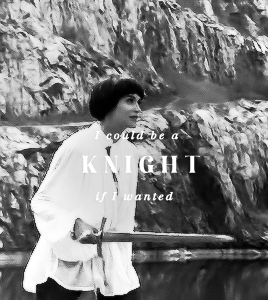


Every Arya & Lyanna parallel:
→ knights
ARYA
Clegane glanced at Arya. “You going to make her a knight too, Dondarrion? The first eight-year-old girl knight?”
“I’m twelve,” Arya lied loudly, “and I could be a knight if I wanted. I could have killed you too, only Lem took my knife.” Remembering that still made her angry.
— A Storm of Swords, Arya VII
LYANNA
The common folk cheered lustily for the Knight of the Laughing Tree, as the new champion soon was called.
— A Storm of Swords, Bran II
JOIN OUR ARYA APPRECIATION MONTH IN MAY!
381 notes
·
View notes
Photo



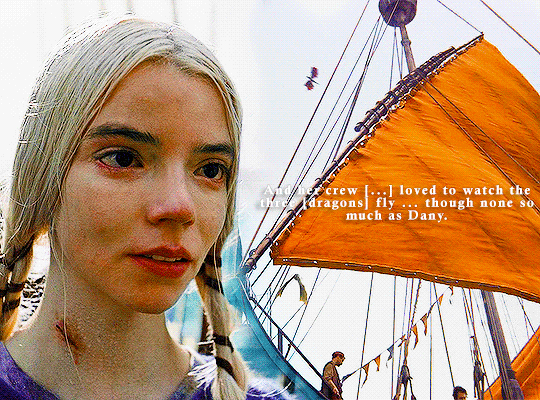

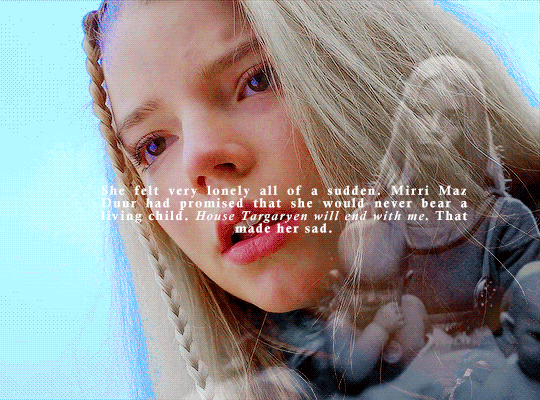

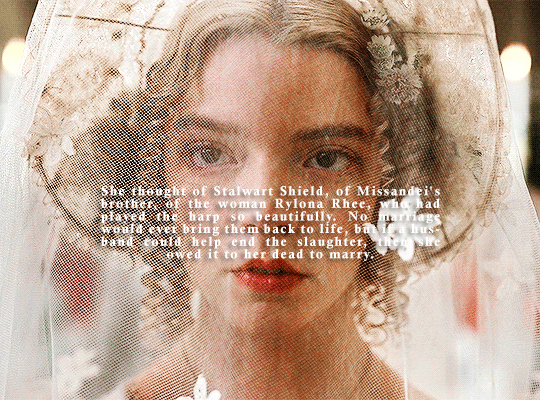
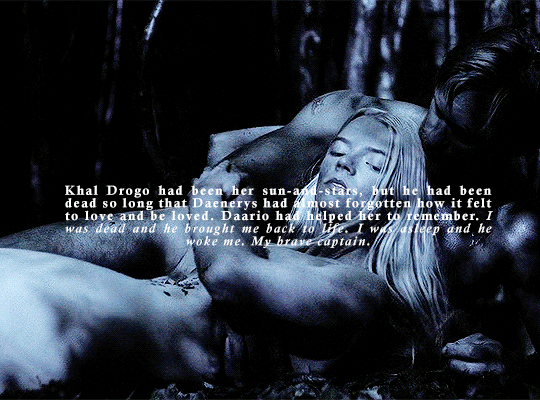
Daenerys Targaryen fancasts - Anya Taylor-Joy
305 notes
·
View notes
Photo

i am but a young girl and know little of the ways of war
2K notes
·
View notes
Photo


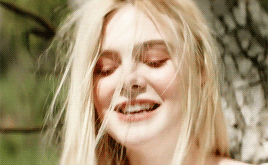


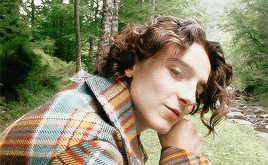


A reminder that this year we are hosting SNOWSTORM SUMMER, three-month-long appreciation event that will take place in JUNE, JULY and AUGUST 2022! The main goal of Snowstorm Summer is to highlight all the similarities, parallels and references Jon and Dany share in the books and celebrate them together by posting edits, gifsets, metas, artworks, fics or just your favorite Jonerys moments.
There will be two sets of prompts: canon and AU ones which you can use as a guide for your posts or come up with something entirely different! We encourage everyone to use book accurate fancasts, but show footage and actors are still very welcome! There are no restrictions: you can post anything you want anytime you want, but make sure to use hashtag #SNOWSTORMSUMMER so we can find and reblog your works!
You can find the list of prompts here.
286 notes
·
View notes
Photo
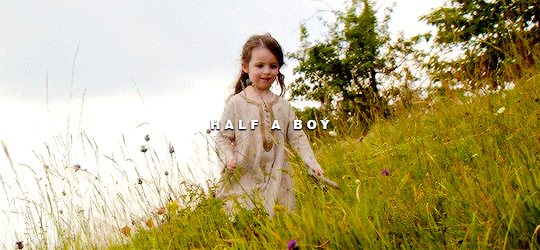
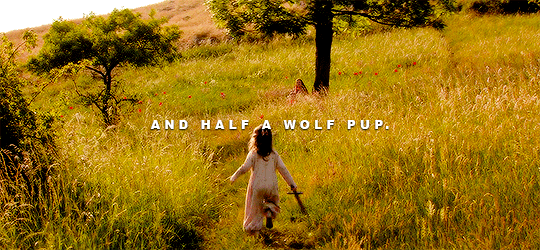
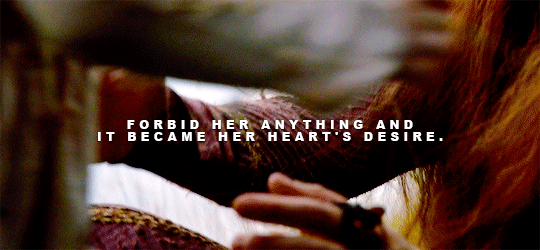
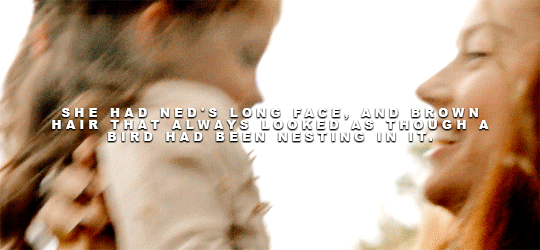
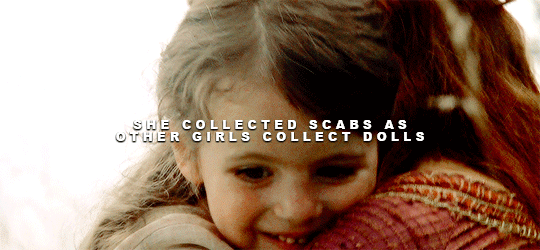
I despaired of ever making a lady of her.
3K notes
·
View notes
Photo
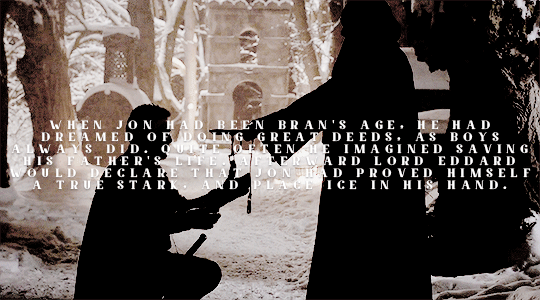


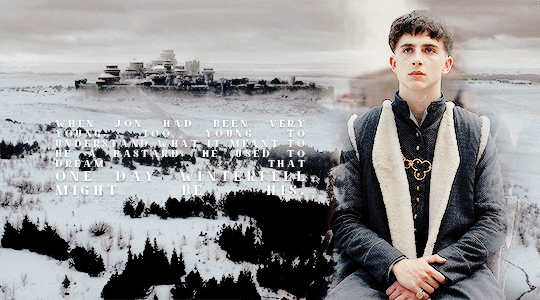

Jon Snow Appreciation Month 2022 || Day 8: Ambition
↳ He wanted it, Jon knew then. He wanted it as much as he had ever wanted anything. I have always wanted it, he thought, guiltily. May the gods forgive me. It was a hunger inside him, sharp as a dragonglass blade. – Jon XII, A Storm of Swords
339 notes
·
View notes
Text
Arya Stark & Deathlessness
Arya’s connection to deathless characters—those who inhabit a liminal existence between life and death—is a theme of ongoing significance throughout ASOIAF.
In AGOT, Arya is compared to Lyanna Stark, whose deathless qualities I’ll speak more on. In ACOK, she is closely entangled with Jaqen H'ghar, a Faceless Man who strives to reinstate a life-death balance that Arya has upset. In ASOS, she meets Beric Dondarrion, who is slowly transitioning from man to wight, as well as the Ghost of High Heart, who connects Arya to past & forthcoming death. Arya also plays a part in resurrecting Catelyn/Lady Stoneheart. In AFFC, she enters the House of Black & White, an underworld where life and death are exchanged. In ADWD, the deathless character is Arya Stark herself, the night wolf.
I. A Game of Thrones: Lyanna Stark
Lyanna Stark is a pre-series character whose memory haunts the narrative in multiple places. Our intro to her is in AGOT Eddard I, when Ned takes Robert into the crypts so as to pay respects. Once there, Robert says she should have been buried elsewhere, “on a hill somewhere, under a fruit tree, with the sun and clouds above her and the rain to wash her clean.” As he sinks into the past, Ned rebuffs Robert, telling him that the crypts are where she wanted to be buried. Fifteen years after her death, her grave is a site of defiance. Her voice rings in Ned’s ears even as she’s surrounded by the imagery of death (her statue in the crypts, the dead flowers she clutches).
The crypts, and Lyanna within them, flicker between one world and the next. Ned is one of several characters who senses this.
He could feel the chill coming up the stairs, a cold breath from deep within the earth.
-
The Lords of Winterfell watched them pass. Their likenesses were carved into the stones that sealed the tombs. In long rows they sat, blind eyes staring out into eternal darkness, while great stone direwolves curled round their feet. The shifting shadows made the stone figures seem to stir as the living passed by.
-
“Lord Eddard Stark, I would name you the Hand of the King.” […] The echoes rang through the darkness, and all around them the dead of Winterfell seemed to watch with cold and disapproving eyes.
-
For a moment Eddard Stark was filled with a terrible sense of foreboding. This was his place, here in the north. He looked at the stone figures all around them, breathed deep in the chill silence of the crypt. He could feel the eyes of the dead. They were all listening, he knew. And winter was coming. [AGOT, Eddard I]
Winterfell’s crypts—and eventually Winterfell itself, after being burnt down—represent an underworld. It’s where Robert offers Ned the office that will lead to his death, the office Ned feels as though he’s being warned away from accepting by the dead (including Lyanna).
Ned ultimately doesn’t heed that foreboding. Similarly, when Arya comes to him telling him of Varys and Illyrio’s meeting witnessed in yet another dark place full of dead things, Ned can’t make sense of it.
“Well, I didn’t mean to. I was down in the dungeons, only they turned into this tunnel. It was all dark, and I didn’t have a torch or a candle to see by, so I had to follow. I couldn’t go back the way I came on account of the monsters. Father, they were talking about killing you! Not the monsters, the two men. They didn’t see me, I was being still as stone and quiet as a shadow, but I heard them. They said you had a book and a bastard and if one Hand could die, why not a second? Is that the book? Jon’s the bastard, I bet.” [AGOT, Arya III]
Arya disappears in the chaos after Robert dies, just as Lyanna once slipped away. A father attempts to save their child. A sadistic king executes Lord Stark. That’s when the story really starts.
II. A Clash of Kings: Jaqen H'Ghar
For a moment Arya stood uncertain, not knowing which way to go. Death was all around her. [ACOK, Arya IV]
In ACOK, Arya saves three prisoners from death & is gifted three lives to pay back the Red God, who is R'hllor. Faceless Men worship the Many-Faced God, so you might say it’s strange that Jaqen specifically devotes these deaths to that deity. GRRM addressed this in a 2012 SSM:
Jaqen refers to the Red God, and elsewhere to the god of fire. Is he referring to R'hllor? When we see Arya being educated by the Faceless Men, R'hllor doesn’t seem to be particularly important to them.
(George thinks for a moment) Well, remember when Jaqen names him: he had very nearly burned to death recently…
Interesting, because R'hllor & resurrection will soon come into play for Arya. During her time spent with Jaqen in Harrenhal, Arya borrows the power over life & death from the Many-Faced God, a power people aren’t supposed to have, as we learn later. It isn’t the last time she does this.
He laid a finger on her lips. “Three lives you shall have of me. No more, no less. Three and we are done. So a girl must ponder.” [ACOK, Arya VII]
“All men must die. We are but death’s instruments, not death himself. When you slew the singer, you took god’s powers on yourself. We kill men, but we do not presume to judge them. Do you understand?”
No, she thought. “Yes,” she said. [ADWD, The Blind Girl]
Arya names herself the Ghost in Harrenhal while she wields this power, though once Jaqen declares the debt paid she reverts back to feeling powerless. But a ghost of what? What is Arya a ghost of? Not of Harren and his sons, surely. For that matter, what is Jon’s direwolf Ghost a ghost of? In Jon’s case we know there is an unspeakable secret in his life (as in, literally, Ned will not speak of it) in the matter of his mother’s identity. Yes, Jon is haunted by something such that wherever he goes, a Ghost follows. Or didn’t Lyanna’s bones follow him to Winterfell? Don’t the crypts of Winterfell invade his dreams?
There is something unspeakable in Arya’s story too: the deaths she has yet to claim. In the time between her giving Jaqen a name and Jaqen taking a life, three lives linger in her hands, just waiting to be snuffed out.
III. A Storm of Swords: Beric Dondarrion, the Ghost of High Heart, & Lady Stoneheart
We meet R'hllor early on, getting into the dark gritty parts of fire magic with Davos and Melisandre throughout ACOK. However, the Red Priest that Arya encounters is Thoros—a far less dangerous practitioner. Arya’s conception of fire magic isn’t one of belief or disbelief; she’s disappointed when Thoros tells her that he can’t bring Ned back, she watches as Sandor wins a trial she knows he should have lost, and she pities the Hound when he’s crying out for help after being burned.
It was not me who raised him, my lady. It was the Lord. R'hllor is not done with him yet. Life is warmth, and warmth is fire, and fire is God's and God's alone.“ [ASOS, Arya VII]
"Fire consumes.” Lord Beric stood behind them, and there was something in his voice that silenced Thoros at once. “It consumes, and when it is done there is nothing left. Nothing.”
-
She cackled again. “Look in your fires, pink priest, and you will see. Not now, though, not here, you’ll see nothing here. This place belongs to the old gods still… they linger here as I do, shrunken and feeble but not yet dead. Nor do they love the flames. For the oak recalls the acorn, the acorn dreams the oak, the stump lives in them both. And they remember when the First Men came with fire in their fists.” [ASOS, Arya VIII]
Fire consumes. This repels the Old Gods that represent milleniums of memory connected the land, the Old Gods to whom the Ghost of High Heart belongs. The Ghost of High Heart is repelled by Arya as well, despite Arya’s established connection to the Old Gods/the North. Perhaps this is because of the upcoming Red Wedding and Arya’s connection to dragging Catelyn’s corpse out of the water. Indeed, the Ghost confuses Beric’s scent (who gives Catelyn the kiss of life) with Arya’s, and speaks of grief connected to the decimation of a family (Summerhall where the Targaryens died), so I’m inclined to this interpretation myself.
“I see you,” she whispered. “I see you, wolf child. Blood child. I thought it was the lord who smelled of death…” She began to sob, her little body shaking. “You are cruel to come to my hill, cruel. I gorged on grief at Summerhall, I need none of yours. Begone from here, dark heart. Begone!” [ASOS, Arya VIII]
Later, Arya is with Sandor when she comes across Gregor’s men, the killing of whom she participates in. Arya is with Sandor when he’s begging for death, and she denies him that.
Two names off of her list yet one dies & one lives by Arya’s hands—if before Arya stood in proximity to the power over life and death, observed it in motion, now she’s beginning to wield it herself.
Arya stepped away from him. “You don’t deserve the gift of mercy.” [ASOS, Arya XIII]
“We never give the gift [of mercy] to please ourselves. Nor do we choose the ones we kill. We are but servants of the God of Many Faces.” [ADWD, the Ugly Little Girl
I use this framing because it brings Arya in line with Bran, who in ADWD commits several of the acts forbidden to wargs unknowingly. He eats a human Coldhands feeds him and wargs into Hodor, while Arya breaks the code of the HoBaW before ever stepping foot in it. Both of them gently undoing a balance.
And then, she enters the Underworld.
IV. A Feast for Crows: The House of Black & White
In Greek mythology, Charon is the boatman who ferries souls across the River Styx in exchange for payment. At the end of ASOS, Arya uses the coin Jaqen gave her to pay the captain to cross her over the Narrow Sea.
She patted Needle’s hilt for luck and plunged into the shadows, taking the steps two at a time so no one could ever say she’d been afraid.
At the top she found a set of carved wooden doors twelve feet high. The left-hand door was made of weirwood pale as bone, the right of gleaming ebony. In their center was a carved moon face; ebony on the weirwood side, weirwood on the ebony. The look of it reminded her somehow of the heart tree in the godswood at Winterfell. The doors are watching me, she thought. She pushed upon both doors at once with the flat of her gloved hands, but neither one would budge. Locked and barred. “Let me in, you stupid,” she said. “I crossed the narrow sea.” She made a fist and pounded. “Jaqen told me to come. I have the iron coin.” She pulled it from her pouch and held it up. “See? Valar morghulis.” [AFFC, Arya I]
Here, Arya is surrounded by death. Every morning she counts bodies and strips them of their possessions. Lives and deaths are exchanged freely & the separation between the two spheres collapses.
Arya’s associations with death become realized in this environment, and I believe AFFC is where her Persephone arc truly takes shape—as Persephone symbolically came of age when Hades abducted her, Arya so does in the House of Black and White. Persephone’s tale purposely parallels marriage rituals with funeral rites: Arya performs the funeral rites for countless bodies in the HoBaW, and to ram the point home she is also “married” twice over in ADWD.
In every sense, Arya has crossed a threshold. This is an important part of the hero’s journey obviously and while Arya has teetered on the brink for a while now, she has now “plunged into the shadows.”
They all seemed to be looking at her, the living and the dead alike. The old man had squeezed three fingers out between the bars. “Water,” he said, “water.”
Arya swung down from her horse. They can’t hurt me, they’re dying. She took her cup from her bedroll and went to the fountain. “What do you think you’re doing, boy?” the townsman snapped. “They’re no concern o’ yours.” She raised the cup to the fish’s mouth. The water splashed across her fingers and down her sleeve, but Arya did not move until the cup was brimming over. [ASOS, Arya V]
-
In the center of the temple she found the water she had heard; a pool ten feet across, black as ink and lit by dim red candles. Beside it sat a young man in a silvery cloak, weeping softly. She watched him dip a hand in the water, sending scarlet ripples racing across the pool. When he drew his fingers back he sucked them, one by one. He must be thirsty. There were stone cups along the rim of the pool. Arya filled one and brought it to him, so he could drink. The young man stared at her for a long moment when she offered it to him. “Valar morghulis,” he said. [AFFC, Arya I]
When Arya gives Dareon the deserter “the gift,” she upsets the life-death balance and pays for it with her sight. If, as Jaqen presented, death and life must be equally exchanged, then is it Arya Stark who is meant to die in exchange for Dareon, her blindness an attempt to drive her into the identity of No One?
V. A Dance with Dragons: Arya Stark
…but her death doesn’t stick. Arya Stark is resurrected every night in her dreams, because during the day she can’t be herself. Yet it’s by choice that Arya remains in the House of Black and White, despite the Kindly Man presenting her with other options. Every day she has to kill Arya Stark, every night she becomes her again.
Despite her attempts to hide her maneuvering, the Kindly Man sees in her the same things that the Ghost of High Heart did.
“I see you,” she whispered. “I see you, wolf child. Blood child. [ASOS, Arya VIII]
"You lie. I can see the truth in your eyes. You have the eyes of a wolf and a taste for blood.” [ADWD, the Ugly Little Girl]
Arya’s ongoing interplay between fire (life, consumption, R'hllor) and ice (death, memory, the Old Gods) results in a unique synthesis between the two magical threads of ASOIAF. In this part of the story she wears the face of a dead girl, combining the two elements of resurrection (by inhabiting her face) and memory (by dreaming her nightmares). Notably Beric’s resurrections were characterized by a loss in memory & Catelyn’s by a loss in a large swath of her personality yet Arya doesn’t face this issue.
Arya drew back from him. “He killed the slave?” That did not sound right. “He should have killed the masters!” [AFFC, Arya II]
“You may have bad dreams for a time,” warned the kindly man. “Her father beat her so often and so brutally that she was never truly free of pain or fear until she came to us.”
“Did you kill him?”
“She asked the gift for herself, not for her father.”
You should have killed him. [ADWD, The Ugly Little Girl]
In any face, Arya Stark remains. It’s very fitting that Arya begins the series learning water dancing which requires she master perfect balance, because it’s a skill that she needs. Between life and death, black and white, ice and fire, Arya Stark hangs in balance.
123 notes
·
View notes
Photo

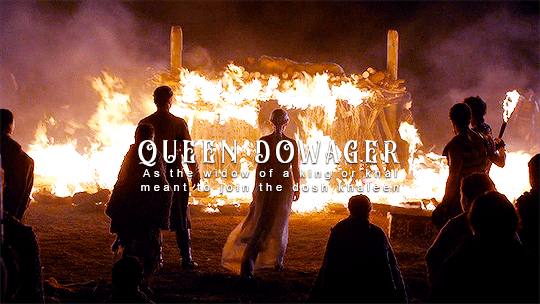
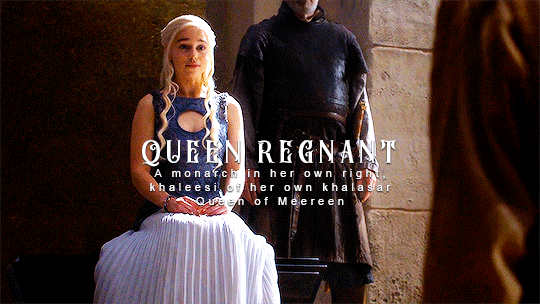
Daenerys Targaryen + Queenship
769 notes
·
View notes
Photo


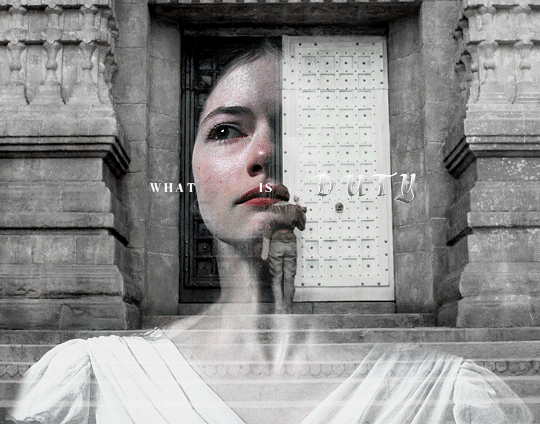

arya stark appreciation month → day 3: jon snow
for love is the bane of honor, the death of duty.
276 notes
·
View notes
Photo
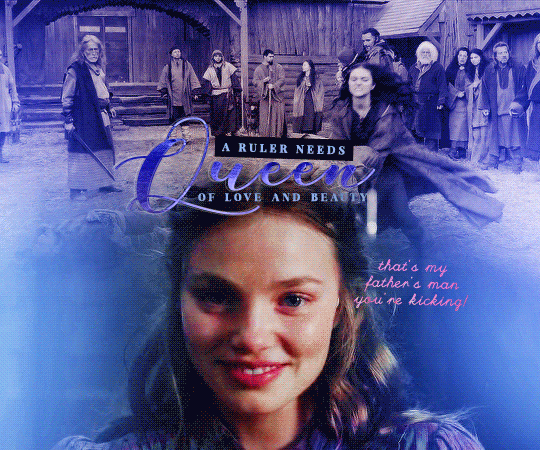
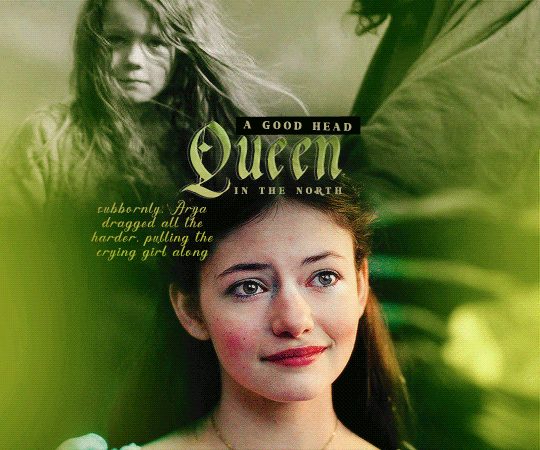

A RULER NEEDS A GOOD HEAD AND TRUE HEART
— Good Queen Alysanne
They shoved him down every time he tried to rise, and kicked him when he curled up on the ground. But then they heard a roar. ‘That’s my father’s man you’re kicking,’ howled the she-wolf. The she-wolf laid into the squires with a tourney sword, scattering them all. The crannogman was bruised and bloodied, so she took him back to her lair to clean his cuts and bind them up with linen.
***
“Arry, come on! Lommy’s gone, leave her if she won’t come!” Stubbornly, Arya dragged all the harder, pulling the crying girl along.
***
“I will not turn away from them,” she said stubbornly. “A queen must know the sufferings of her people.” “Khaleesi, no.” The bell in his braid rang softly as he dismounted. “You must not get any closer. Do not let them touch you! Do not!” Dany walked right past him. There was an old man on the ground a few feet away, moaning and staring up at the grey belly of the clouds. She knelt beside him, wrinkling her nose at the smell, and pushed back his dirty grey hair to feel his brow. “His flesh is on fire. I need water to bathe him. Seawater will serve. Marselen, will you fetch some for me? I need oil as well, for the pyre. Who will help me burn the dead?”
511 notes
·
View notes
Photo


Dany and Jon parallels: the first thing they do after successfully commanding the Battle near Yunkai and the Battle for the gate is asking about their soldiers’ well-being.
The tent flap pushed open, and Ser Jorah Mormont entered. He was dusty, and spattered with blood, but otherwise none the worse for battle. The exile knight went to one knee before Dany and said, “Your Grace, I bring you victory. The Stormcrows turned their cloaks, the slaves broke, and the Second Sons were too drunk to fight, just as you said. Two hundred dead, Yunkai'i for the most part. Their slaves threw down their spears and ran, and their sellswords yielded. We have several thousand captives.”
“Our own losses?”
“A dozen. If that many.”
Only then did she allow herself to smile.
***
Then suddenly the mammoths were fleeing, running from the smoke and flames and smashing into those behind them in their terror. Those went backward too, the giants and wildlings behind them scrambling to get out of their way. In half a heartbeat the whole center was collapsing. The horsemen on the flanks saw themselves being abandoned and decided to fall back as well, not one so much as blooded. Even the chariots rumbled off, having done nothing but look fearsome and make a lot of noise. When they break, they break hard, Jon Snow thought as he watched them reel away. The drums had all gone silent. How do you like that music, Mance? How do you like the taste of the Dornishman’s wife? “Do we have anyone hurt?” he asked.
1K notes
·
View notes